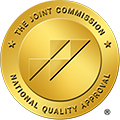Our expert medical team provides evidence-based treatments in a flexible outpatient setting, ensuring your safety and comfort throughout the process. Whether you’re addressing dependence on alcohol, opioids, or other substances, we offer personalized care tailored to help you transition confidently and with dignity to a substance-free life.

Why Is Withdrawal Management Important in Recovery?
Withdrawal from substances can lead to severe and sometimes life-threatening symptoms, such as seizures or extreme dehydration. Professional withdrawal management provides necessary medical oversight to address these risks, ensuring the detox process is safe and controlled.
Intense cravings, anxiety, and discomfort during withdrawal are common triggers for relapse. With medications, therapies, and emotional support, withdrawal management alleviates these challenges, helping individuals stay committed to their recovery journey and transition into long-term treatment more effectively.
Withdrawal can be both physically painful and emotionally overwhelming. Symptoms like nausea, insomnia, and depression are managed through targeted care, including medications to reduce discomfort and counseling to provide emotional stability, ensuring a smoother and less intimidating detox phase.
Detoxing alone at home can be isolating and unsafe. Withdrawal management programs create a structured, supportive environment with continuous monitoring by professionals. This reduces exposure to triggers, minimizes distractions, and encourages individuals to focus fully on their recovery.
As one of the first steps in recovery, withdrawal management lays the groundwork for long-term success. It helps individuals address immediate challenges, stabilize physically and emotionally, and prepare for the next phase of treatment, such as inpatient or outpatient rehabilitation.
Many individuals struggling with addiction also face underlying health conditions, such as anxiety, depression, or chronic pain. Withdrawal management programs identify and treat these issues alongside withdrawal symptoms, providing holistic care that supports lasting recovery.
Completing withdrawal management under professional care instills confidence and hope. Knowing that expert help is available for the toughest phase of recovery empowers individuals to move forward with greater determination toward a healthier, substance-free life.
Withdrawal management is not just about overcoming immediate symptoms—it is a critical foundation for long-term recovery, setting the stage for sustainable change and growth.
Who Needs Professional Withdrawal Management?
- Have a long history of substance use.
- Depend on substances with severe withdrawal risks, such as alcohol, benzodiazepines, or opioids.
- Have co-occurring mental health disorders that can complicate the withdrawal process.
- Have experienced previous withdrawal complications.
- Lack of a supportive environment for detoxification.
Professional care is particularly important for individuals withdrawing from substances that can cause life-threatening symptoms, such as alcohol or benzodiazepines.
Common Withdrawal Symptoms by Substance Type
Alcohol
- Tremors (shaking hands)
- Anxiety and agitation
- Sweating
- Nausea and vomiting
- Severe cases: seizures, delirium tremens (DTs)
Opioids (e.g., heroin, prescription painkillers)
- Muscle aches
- Insomnia
- Diarrhea
- Vomiting
- Intense cravings
Benzodiazepines (e.g., Xanax, Valium)
- Anxiety
- Panic attacks
- Insomnia
- Muscle spasms
- Severe cases: seizures, psychosis
Stimulants (e.g., cocaine, methamphetamine)
- Fatigue
- Depression
- Increased appetite
- Sleep disturbances
- Intense cravings
Nicotine
- Irritability
- Difficulty concentrating
- Increased appetite
- Anxiety
The Stages of Withdrawal and Their Symptoms
- Typically begins within hours to a few days of ceasing substance use.
- Symptoms are often most intense during this period.
- Duration varies based on the substance and individual factors.
- Symptoms gradually diminish but may linger for weeks or months.
- Includes mood swings, anxiety, and sleep disturbances.
- Psychological cravings and triggers may persist.
- Continued support is essential for long-term success.

Medications Used in Withdrawal Management
- Benzodiazepines: Reduce the risk of seizures in alcohol withdrawal.
- Methadone or Buprenorphine: Manage opioid withdrawal symptoms and cravings.
- Naltrexone: Prevents relapse by blocking the effects of opioids and alcohol.
- Antidepressants or Antianxiety Medications: Address mood-related withdrawal symptoms.
- Clonidine: Reduces symptoms such as sweating, cramps, and anxiety during opioid withdrawal.
These medications are administered under strict medical supervision to ensure safety and effectiveness.
Inpatient vs. Outpatient Withdrawal Management in Atlanta
Outpatient programs, on the other hand, allow individuals to live at home while attending scheduled appointments for medical care and counseling. This option suits those with mild to moderate symptoms and a supportive home environment, offering flexibility to maintain daily responsibilities while receiving treatment.
The choice depends on the severity of withdrawal symptoms and individual circumstances. Inpatient care is best for intensive needs, while outpatient care provides a practical solution for those with stable support systems. Both options in Atlanta deliver tailored care to support a successful recovery.
Benefits of Choosing a Withdrawal Management Program in Atlanta, GA
Atlanta’s programs provide access to experienced professionals and specialized addiction recovery services tailored to individual needs.
Programs combine medical care, therapy, and emotional support to address both physical and psychological challenges.
State-of-the-art facilities in Atlanta prioritize safety and comfort during the withdrawal process.
Atlanta offers extensive recovery resources, including support groups, sober living homes, and outpatient programs for continued care.
With both inpatient and outpatient programs, Atlanta provides tailored solutions to fit varying recovery needs.
Programs equip individuals with tools and resources to prevent relapse and build a foundation for lasting sobriety.


What to Expect During the Withdrawal Management Process
A thorough evaluation of medical history, substance use patterns, and mental health helps create a personalized plan tailored to the individual’s needs.
Medical care and medications are provided to manage withdrawal symptoms and ensure safety. This phase includes close monitoring and emotional support to address cravings, anxiety, and potential complications.
Once stabilized, individuals are guided toward the next phase of recovery, such as inpatient or outpatient treatment. Transition planning ensures a clear path forward with resources and support systems in place.
This process prioritizes safety, comfort, and readiness for long-term recovery.
The Role of Counseling and Support During Withdrawal
- Address fears and anxieties about withdrawal.
- Develop coping strategies to manage cravings and triggers.
- Build motivation and confidence for recovery.
Support can come from professional counselors, peer groups, or family members. In Atlanta, many programs integrate counseling into the withdrawal process, ensuring a holistic approach to care.





